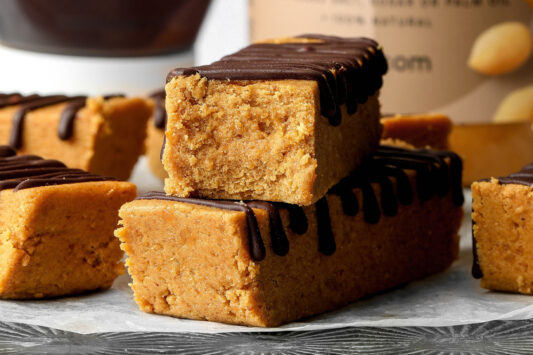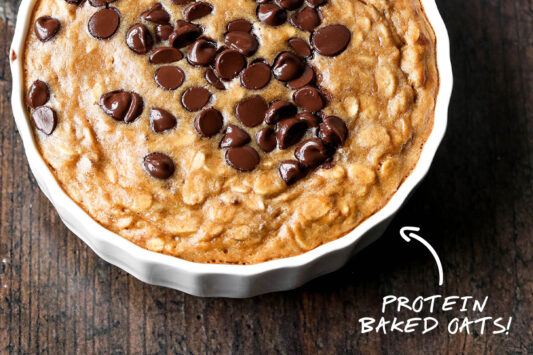Weight Fluctuation: Common Causes
Progress tracking is a great way to monitor your results from dieting and training. There are many methods of tracking you can use, such as body part measurements, body fat measuring, muscle tissue testing, physical performance testing, or even just simply by using progress pictures. However, the most common method of tracking progress is monitoring body weight.
Watching your weight drop can be very motivating, however, when weight begins to fluctuate throughout the week it can actually be quite disheartening for someone who feels they’ve been putting in the effort and not achieving the results they expected.
Unfortunately, weight monitoring isn’t the most accurate determinant of progress, because there are numerous factors which influence your weight besides fat loss. This article will help you to understand the reasons why your weight loss may not be linear, and how you can monitor your progress most accurately.
1) Physical Activity
When performing physical activity and particularly resistance-based training, your muscles are likely to grow, especially if you’re either new to training, or you’re not in a calorie deficit. This growth in muscle is certain to have an effect on your body weight, as muscle is denser than fat. You may notice that in the mirror you look slimmer, but the scales tell a different story.
When it comes to tracking weight loss and not performing exercise (e.g. you’re creating your calorie deficit solely via a nutritional approach), it’s still important to understand the many factors that can influence fluctuations in weight.
It’s imperative that you don’t become disheartened by unexpected increases in your weight, as there are so many factors that can influence it. Additionally, your increase in weight could be a positive sign of muscle growth. Maintaining muscle while losing fat is the ideal situation for anyone wanting to shed a few pounds, as with less body fat you’ll be able to see more definition of the muscles and maintain a healthier and more able body.
So, in order to gain a more accurate reading of your progress, you may want to consider monitoring your body fat percentage, either with skin calipers, or even just by using body-fat measuring scales. This method could help to highlight your body composition progress more accurately rather than just going off weight alone.
2) Food Weight & Meal Timings
Something I haven’t seen brought to attention when it comes to weight fluctuation is the effect that actual weight of food has on your body. Everything we eat is broken down, metabolised and used for energy. Initially the body will experience an increase in weight due to consuming foods. This is why measuring your weight after eating is not a good idea, as it’s inaccurate for recording progress.
As we measure food in calories, it’s important to understand that even though a piece of food may have a certain weight, it will hold a specific caloric value to the body. For example, if you were to consume 200g of cabbage (or 50kcals worth), your weight would likely increase by around 200g instantly. Although, once that food has been metabolised, if you’re still in a deficit of calories by the end of the day, your weight will drop.
Similarly, water weighs 1kg per 1L but holds no caloric value, so if you were to drink 500ml of water your weight may increase by 500g initially, but once the body gathers the minerals it requires and hydrates itself sufficiently, any unnecessary water will be disposed of as waste and your weight will reach its true level.
Taking this into consideration, it’s important to reiterate that if you wish to monitor your weight, you should do so at the beginning of the day, once per week on the same day and under as close to the same circumstances as possible.
Referring back to post-meal weight; if you eat little and often throughout the day, your weight is likely to only go through minor fluctuations as you’re keeping your meals steady. Whereas if you eat fewer, larger meals, your weight will likely spike further after eating. However, this is nothing to worry about, as the body will still break down and utilise the food and water you have provided it with, and when you wake up the next day you’ll have a fresh canvas to work with again.
3) Water Retention
One main reason for weight fluctuations which you may be aware of is water retention. The body requires water to complete the majority of its functions, and so it’s highly important that you drink enough of it to perform well, stay hydrated and maintain a healthy body.
Water is lost through perspiration when physical activity is performed and when the body is hot, and because of this you need to replenish your body with water after sweating. Weighing yourself prior to exercise will give you a different result to weighing yourself post-training due to the difference in water retention.
With this in mind, your weight on “rest days” is likely to be different to your weight on training days, due to the difference in your activity levels. Stay mindful of this when you’re next monitoring your progress, as you may witness random days in which your weight has raised and fallen.
- In order to accurately record your weight, you should weigh yourself at the same time on the same day once per week under as close to the same circumstances as possible. This way, you’re likely to see more linear progress.
4) Sodium Chloride (Table Salt)
Sodium is a chemical in foods which causes water retention. This isn’t necessarily a bad thing, it’s just that if you consume unsteady amounts of sodium throughout the week, you will hold onto different amounts of water each day as a result of the disequilibrium.
Table Salt (Sodium Chloride) is the main chemical responsible for water retention, so in order to balance out your weight fluctuations you need to keep an eye on the amount of salt you’re consuming each day and try to avoid spikes. Or, just be aware that when you consume foods high in salt, you’ll likely notice your weight increase on the scales.
- Foods containing high amounts of sodium chloride include processed foods and take-away meals, as well as smoked/cured/salted meats and fish.
Take Home Message
Perform physical activity and drink enough water to replenish what you expend. Use exercise as a tool to aid your nutrition in creating a deficit of calories if you wish to lose fat.
Try not to put too much emphasis on monitoring weight loss alone; instead, begin to more accurately track your progress by monitoring your body fat percentage so that you can gain a true perspective on how much improvement you’re making.
Make a conscious effort to consume a steady amount of sodium in your diet to avoid uneven levels of water retention throughout the week. This will help your weight stay balanced and enable you to minimise the chances of large spikes due to water retention.
Related articles
Eager to learn more diet and weight loss? We believe that every person, with support, has the right to transform their lives through fitness. That’s why we’ve put together hundreds of articles with expert advice, all to help you on your fitness journey. From weight loss tips to common cutting mistakes, check out these relevant articles below:
Common cutting mistakes Why does my weight fluctuate so much?
How to lose weight when vegan Reasons you may struggle to lose weight
7 Healthy Weight Loss Tips Do protein supplements help female weight loss?
Summer shredding: How to do it properly Whey protein, fibre and bloating
How much protein can your body absorb Intermittent fasting bulking
Why does my weight fluctuate so much? Diet for building muscle















